WIESBADEN, German - Wiesbaden military community members were treated to an American history lesson from one of the stalwarts of the Civil Rights Movement Feb. 3.
Rev. Jesse Jackson, a contemporary of Dr. Martin Luther King Jr. and two-time Democratic candidate for the nation's highest office, spoke to Wiesbaden service members and their families during a visit to Wiesbaden Army Airfield. The sole stop at a U.S. military installation in Europe was part of the U.S. Army Garrison Wiesbaden's African American History Month observances.
"I have very fond memories of these bases in Germany and I wanted to stop to express how I respect our service members," said Jackson, who spoke at the U.S. Consulate in Frankfurt the day before and was headed to the Netherlands after the Wiesbaden event.
During interviews with the American Forces Network Radio and Television at AFN Hessen, Jackson shared memories of his World War II veteran father ("who fought racism in Europe") and expressed his belief that service members must be treated fairly, with dignity and respect. "We're fighting for the security of those who protect our security. We must protect those who secure us. ... Know that you are respected and appreciated."
Jackson, who marched alongside Dr. King during the Selma to Montgomery civil rights marches in 1965 and helped organize the Rainbow Coalition and Operation PUSH, said the U.S. military "plays a huge role in force and stability around the world and at home. ... You who serve our nation well deserve to be serviced. ... Soldiers must always be protected against the hostility of hometown politics."
Describing the U.S. military as a leader in changing attitudes and encouraging equality, Jackson said, "Today the military is the most integrated institution in the United States." Having integrated and lifted barriers to advancement among the ranks well before other U.S. institutions and society as a whole after World War II, Jackson said, the military serves as a model of equal opportunity. "In the military and in sports we do very well - the rules are clear. But when you leave the military, a college campus or the football field, the rules are not as clear. ... Whenever the playing field is even and we learn to play by the rules we also learn to live together.
"The struggle has never stopped," said Jackson, describing today's challenges as overcoming the economic forces that severely impact less affluent Americans such as enforcement of fair lending and housing laws - part of "Dr. King's legacy."
Despite progress in the United States, black Americans still suffer extremely high infant mortality, low life expectancy, unemployment and high prison population rates.
"A part of our job is to pull down walls so that people can grow to their full potential."
In light of the garrison's Comprehensive Community Fitness initiative, Jackson also addressed the role of resiliency in the Civil Rights Movement and today's military. Calling resilience a "state of mind," Jackson said, "Life is not a straight line - it has potholes in it - curves in it. ... Those who are resilient get back up. Suffering breeds character. Know that you're doing good things. You fight to defend liberty and freedom - no less than Dr. King did. ... Resilience is a great virtue."
During a question and answer session following his speech, Jackson answered a question about his opinion of the military's "Don't ask, don't tell" policy regarding homosexual service members by saying, "Soldiers should be judged by their character, courage and performance and not their sexuality."
Wiesbaden High School student Matthew Jordan asked what is was like to have stood beside such American historical figures as Dr. Martin Luther King Jr. and Rosa Parks.
"It was quite an honor," said Jackson, explaining that despite some portrayals of Parks as an ignorant, unaware person who simply refused to sit at the back of a Montgomery, Ala., bus in 1955, she was falsely characterized as uneducated and meek. Having gotten to know her well, Jackson said she was educated and a member of the National Association for the Advancement of Colored People. "She had that kind of steel, resigned courage and knew that she was challenging an unjust law."
He also shared a recollection of having asked Parks about what inspired her, explaining that she told him the memory of Emmett Till, a 14-year-old black Mississippi boy who was brutally murdered for supposedly whistling at a white woman, was the spark that led her to make the fateful decision to refuse to move to the back of the bus.
Dr. King, too, "had a deep knowledge of American history," Jackson said. "He was absolutely committed to changing our country for the better."
"Rev. Jackson has always challenged our nation to be inclusive," said Col. Jeffrey Dill, U.S. Army Garrison Wiesbaden commander. The garrison commander presented the guest speaker with a Certificate of Appreciation for his participation in the garrison's observance.
The African American History Month Celebration also included vocal performances by Peshon Allen and Spc. Erin Sataloff, and an original, interpretative dance by Vanessa and Paul Brown.
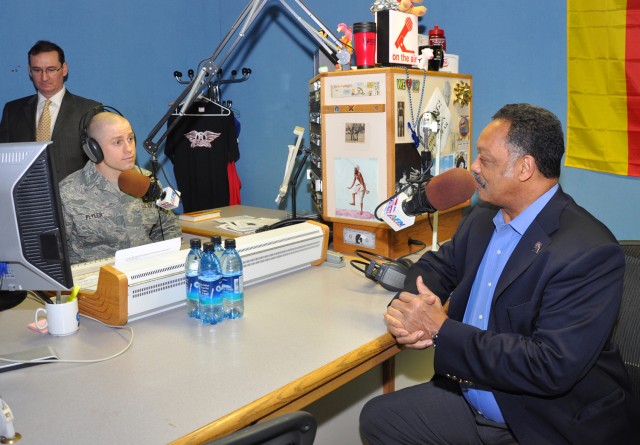
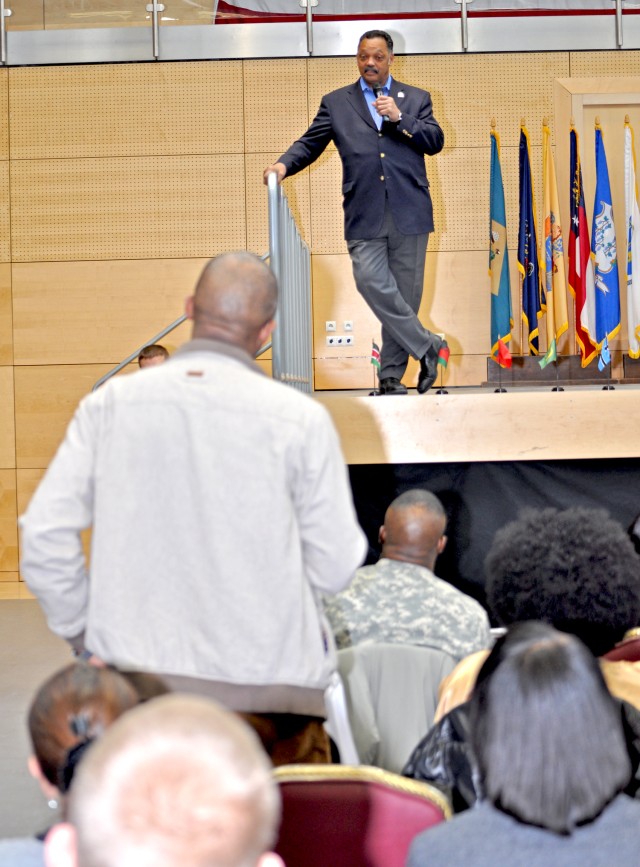
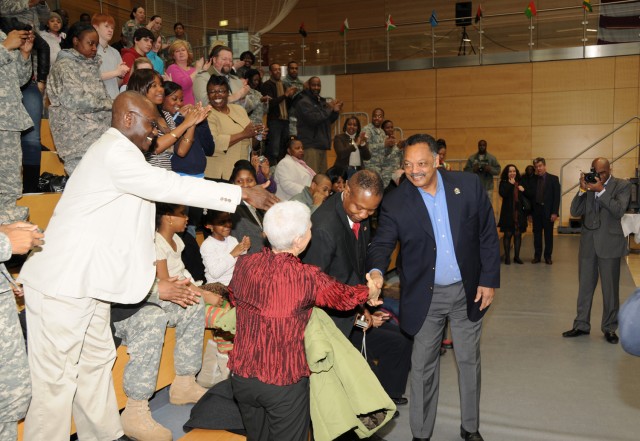
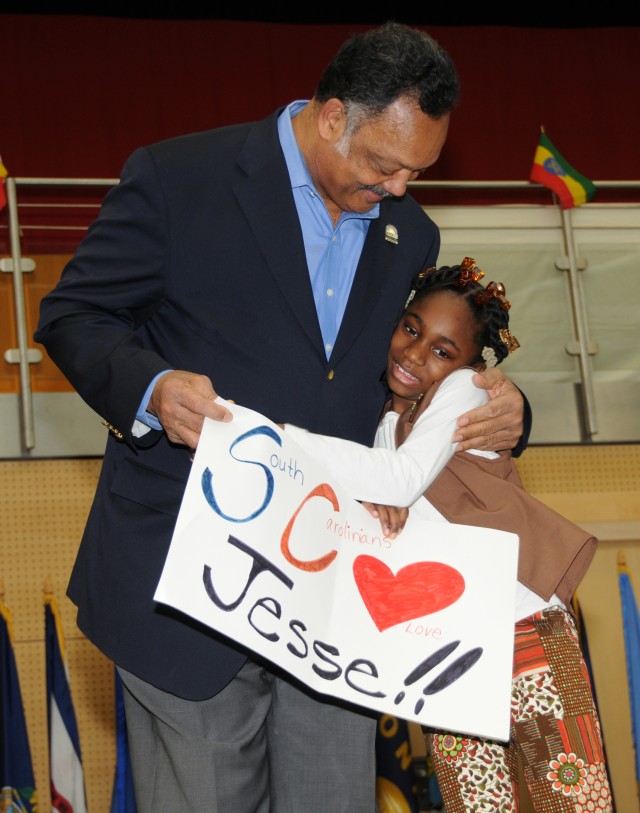
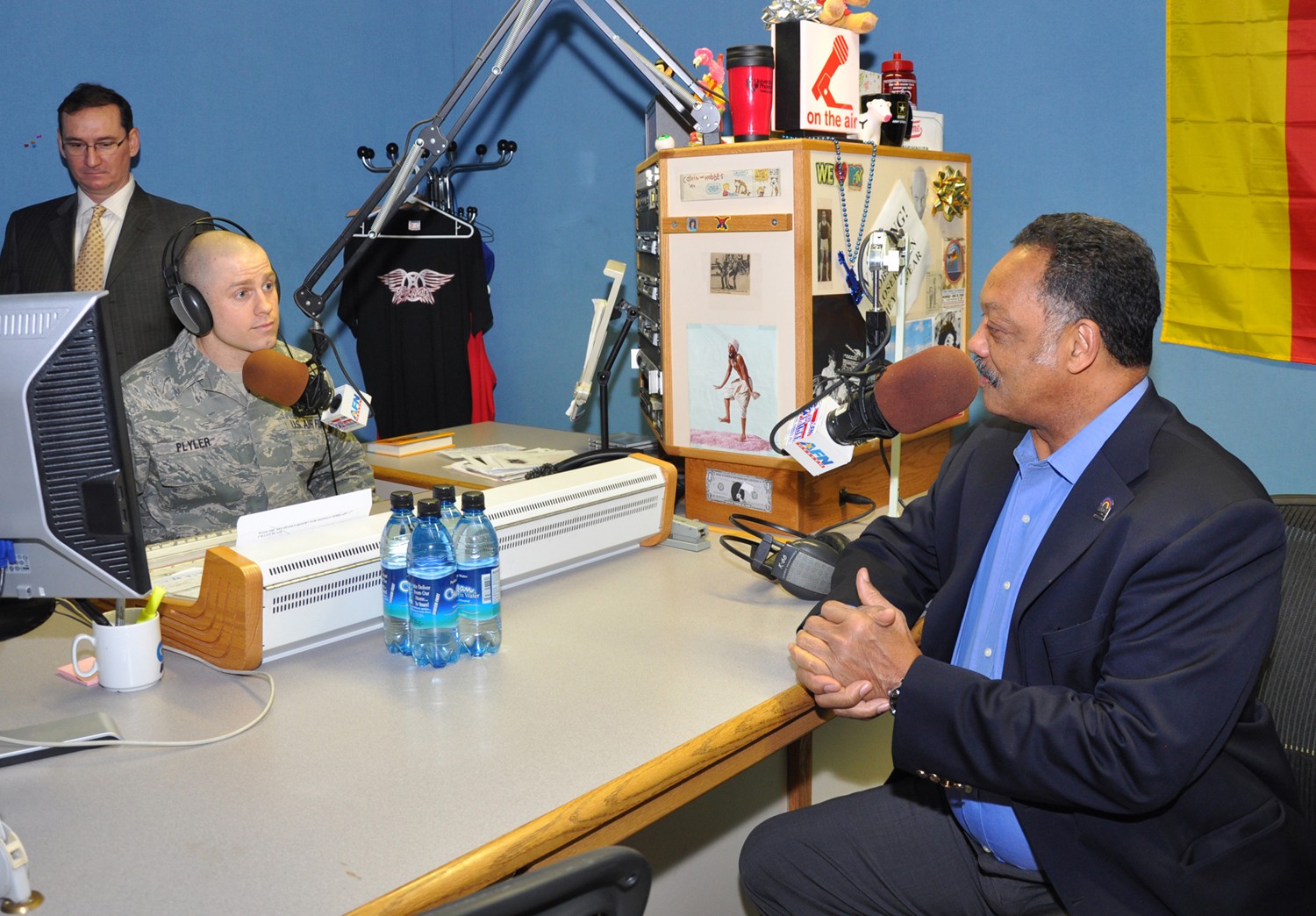
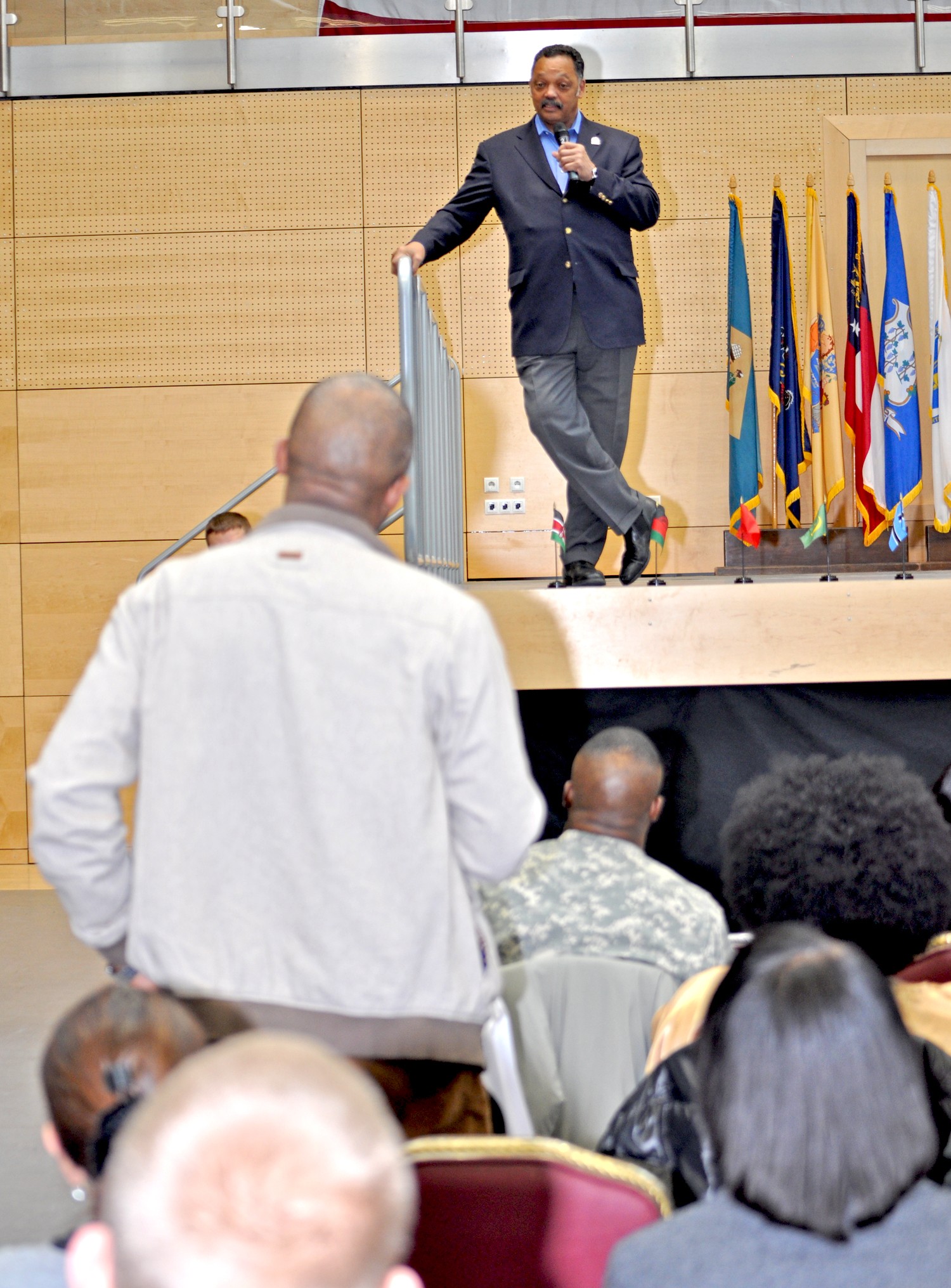
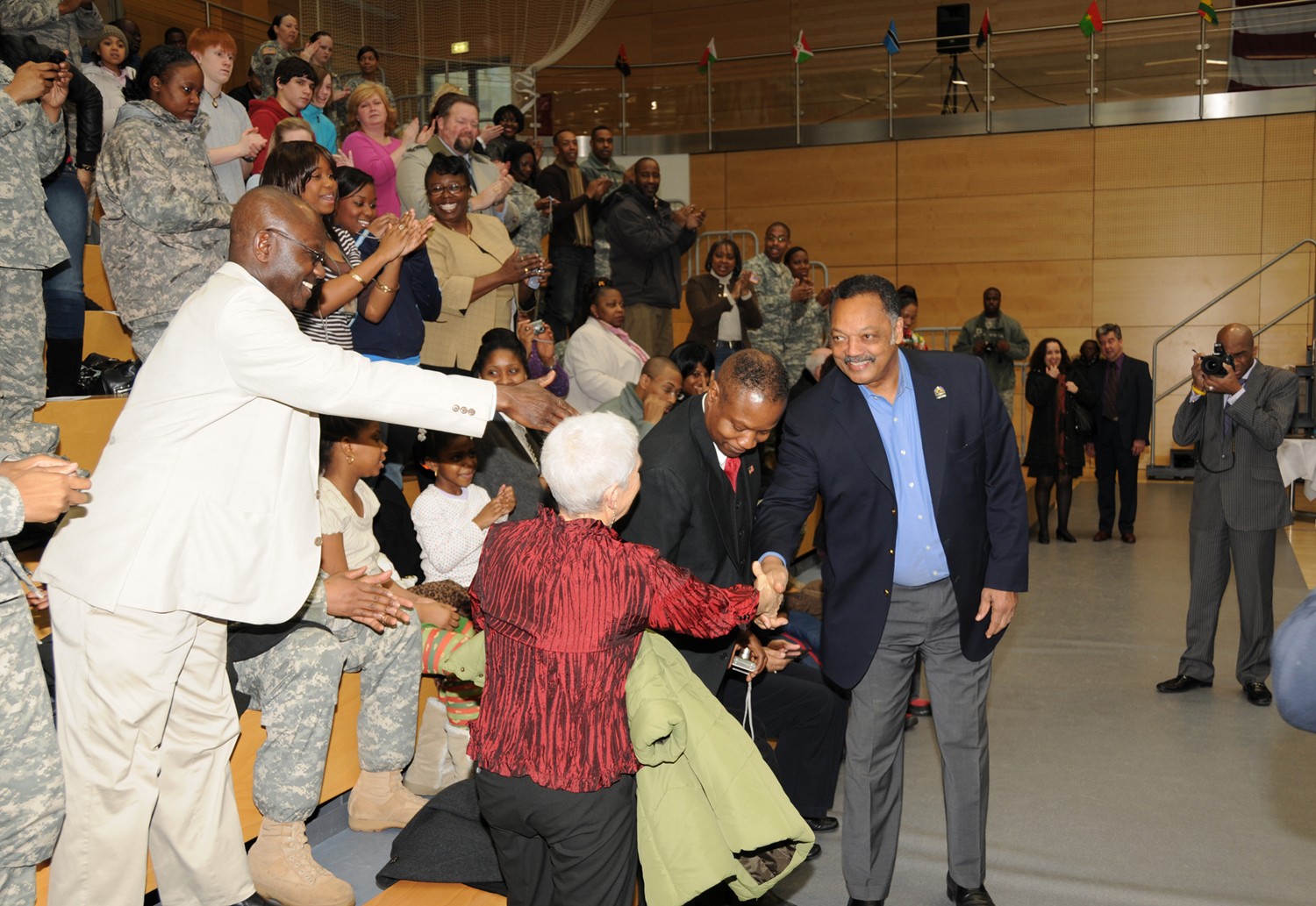
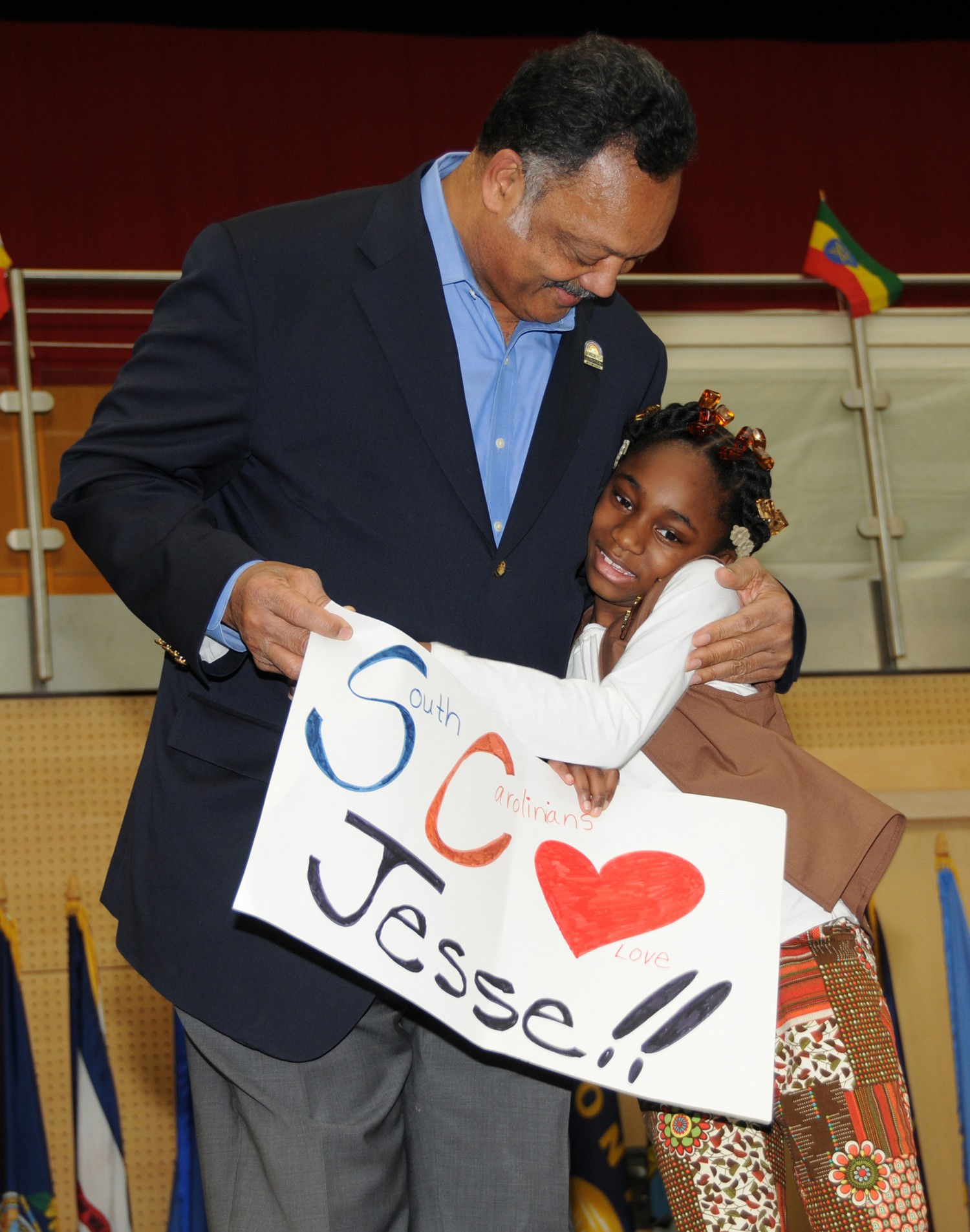
Social Sharing